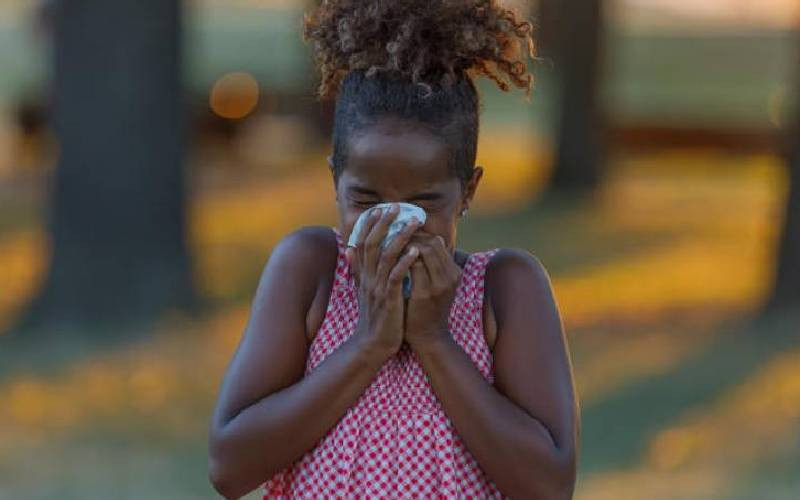
There most common diseases that affect people, especially children, during the cold season are pneumonia, asthma, diarrhoea, bronchiolitis and the common cold.
According to Dr Peninah Musyoka, a paediatrician at Machakos Children's Clinic, the common cold is usually caused by viruses that cause infection in the nose, throat and trachea, making it an upper respiratory tract infection.
Some of the viruses that cause the common cold include rhinovirus and Respiratory Syncytial Virus (RSV) among many others.
However, many people confuse the common cold with the flu, and Dr Musyoka explains that the difference between the two is that the flu is caused by the influenza virus while the common cold can be caused by different viruses.
Additionally, the signs differ in that a common cold will present with very mild signs and symptoms while the flu will have very strong symptoms which may lead to more health complications and even hospitalisation.
"Although a common cold can clear within a few days to a week, the flu may take a week to a few weeks before clearing."
Some of the patients with the common cold will present with a fever, a dry cough, sneezing, and nasal discharge, a child will not be feeding well and may be irritable and crying.
- How climate change is making people unhealthy
- How to protect your family during cold season
- The viral threats everyone should watch in 2026
- Dental fluorosis crisis in Naivasha deepens amid calls for better water
Keep Reading
Many people know that a common cold can clear itself within a week since it is a viral infection, but all the same, a mother ought to take her sick child to the hospital but not self-medicate like most would like to do.
Dr Musyoka advises that self-medication usually leads to antimicrobial resistance (AMR) explaining that most will likely buy an antibiotic to clear the cold, yet a common cold is not a bacterial infection, while others buy cough syrups which have decongestants that are harmful to the children.
"When you see your child is not feeding well, breathing fast, wheezing or convulsing, then it is high time you took that child to the hospital because the doctor will know what drug to give or what measures to take."
One way of treating a common cold in children is by managing the symptoms such as fever, where the parent can control the baby's temperature by either reducing the number of clothing on the baby or by sponging the child with warm water and then giving paracetamol for the fever.
The paediatrician advises that the common cold can be prevented through simple hygiene like handwashing and by giving the right nutrition for the children to develop immunity to fight off the infection.
"Good nutrition and breastfeeding help children in fighting infections. Exclusive breastfeeding for the first six months and later weaning on a balanced diet will give them the immunity they require to fight off the common cold and other illnesses."
 The Standard Group Plc is a multi-media organization with investments in media
platforms spanning newspaper print
operations, television, radio broadcasting, digital and online services. The
Standard Group is recognized as a
leading multi-media house in Kenya with a key influence in matters of national
and international interest.
The Standard Group Plc is a multi-media organization with investments in media
platforms spanning newspaper print
operations, television, radio broadcasting, digital and online services. The
Standard Group is recognized as a
leading multi-media house in Kenya with a key influence in matters of national
and international interest.











